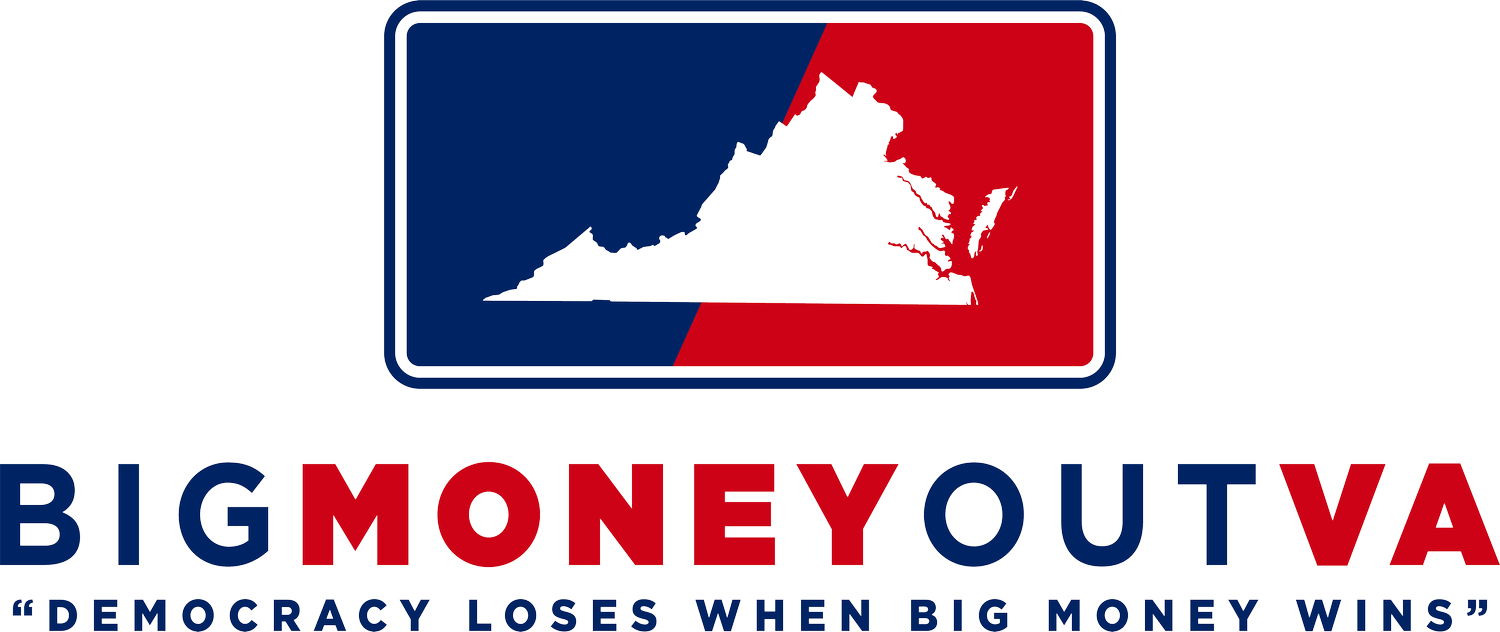Failure to pass meaningful campaign finance bills portends a 2023 election characterized by the most expensive races in Virginia history.
RICHMOND, VA – 2023 was another disappointing year for campaign finance reform measures here in the Commonwealth. Despite early excitement and the introduction of over a dozen bills, every single piece of substantive campaign finance reform, barring one, was killed by the end of this year’s General Assembly session. This mirrors what happened in 2022. Unfortunately for Virginia residents, the legislative “powers that be” neglected to reconvene a subcommittee of citizens and lawmakers to continue last year’s work on campaign finance reform. This revealed a keen disinterest among lawmakers in publicly discussing how to begin sorely needed, comprehensive campaign finance reform in Virginia. This served as an early tip-off to citizen-advocates that reform was not in the works for this General Assembly session. Let’s face it, Virginia’s campaign finance reform laws remain some of the worst in the nation, ranking 43rd in the Coalition for Integrity’s 2022 cross-state analysis.
Looking ahead, this November’s election is expected to be a watershed moment. All 140 General Assembly seats will be up for grabs. Both the large number of incumbent retirements and the newly redrawn voting districts should contribute to more competitive races. The 2024 General Assembly will undoubtedly have new faces, but the same campaign finance laws. The failure of the 2023 General Assembly to pass reasonable limits on campaign donations (unlike 45 other states) will fuel an escalation of the cost of the upcoming elections in Virginia, already characterized as a state with some of the most expensive races in the country. In 2019, Virginia Public Access Project (VPAP) data showed candidates in 30 Virginia legislative races spent more than $1 million each, with five contests that year exceeding $4 million. The official salary for state senators and delegates is less than $20,000 per year. Virginia’s 2021 Gubernatorial race, clocking in at over $140 million, was among the most expensive in the nation.
Legislators consistently argue that putting limits on contributions will increase the flow of dark money into our elections. Yet, money is currently flooding into Virginia primaries, boosting individual candidate coffers by millions of dollars. Already, VPAP estimates that multi-millionaire Michael Bills, his wife, and his advocacy group, Clean Virginia, have contributed nearly $6 million to candidates, followed by Dominion Energy at $2.7 million. An obscure LLC called Securiport donated $1 million to a PAC set up in mid-January, called Renew Virginia, founded by Senate candidate for District 31, Juan Pablo Segura. 2023 is gearing up to be a money arms war in the making and a race to the bottom for the voices of average Virginia voters.
Meanwhile, this year’s sensible disclosure bills championed by Senator Favola and Delegate Helmer died. Their bills would have forced more transparency about the funding for obscure election attack ads. Apparently the five delegates who killed these bills (Delegates O’Quinn, Wren, Taylor, Wachsmann, and Bloxom) feel that the voices of anonymous, wealthy donors who are trying to influence our elections need protection, not the voters, nor the legislators targeted by deep-pocketed special interests. So competitive primaries this year will likely attract millions of dollars to fund negative campaign ads and candidates will complain about being targeted by unknown groups. But legislators voted down the very bills which would protect them. These same legislators voted down a bill proposing sensible guardrails on the personal use campaign funds, long considered the lowest hanging fruit of sensible reform. This bill has been introduced every year since 2014 and this session it moved out of the Senate on a remarkable 38-0 vote, highlighting unanimous bipartisan support, only to die in a partisan 5-3 vote in a House sub-committee.
Clearly, this year was yet another missed opportunity to pass commonsense campaign finance laws that would have benefitted legislators and voters alike, and to improve Virginia’s reputation for good governance. At a January 24, 2023, Democracy Day, more than 60 citizens and 10 partner organizations lobbied in-person at the General Assembly. They spoke with legislators and rallied support for campaign finance reform measures. Attendees and sponsors are disappointed in the outcomes of this year’s legislative session, but plan to be back next year to continue the fight. One lost battle doesn’t determine the outcome of a struggle against the tyranny of deep-pocketed donors. Virginians take pride in the 400-year historical fight for political equality in our Commonwealth. In recent years, this struggle has focused on removing the corrosive influence of big money from our political system. Let’s make getting big money out of Virginia politics a campaign issue. We must ask every single candidate, Republican, Democrat, and Independent, to sign a candidate pledge committing to reform.

